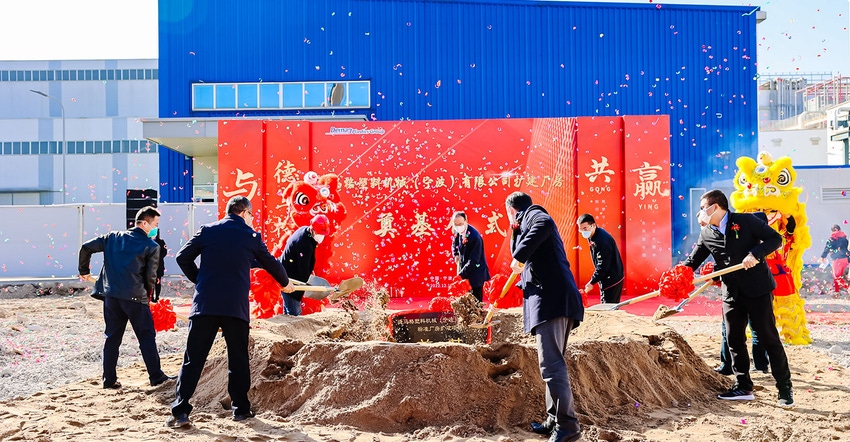Sumitomo (SHI) Demag Doubles Production Capacity in China
The maker of injection molding equipment expects the 4,000-square-meter production facility to be up and running this fall.
February 27, 2023

Injection molding equipment manufacturer Sumitomo (SHI) Demag China broke ground last month on the construction of a new 4,000-square-meter production facility at its Ningbo site in China. The new plant will double production capacity for Asian markets and serve rising demand for higher-tonnage machines, said the company. It is set to open in the fall of this year.
CEO Pietro Scattarreggia welcomed the mayor and city councilors from the Beilun district to the groundbreaking, which is expected to create some 50 new jobs. At the ceremony, Scattarreggia noted that the Asian market in general — and automotive and electromobility in China, in particular — are booming. “Having experienced the strongest performance in the company’s history in 2021 and subsequent economic slowdown last year as a result of coronavirus policy restrictions, the future outlook remains very positive,” he said.
The new Ningbo production hall will allow the company to build its larger-tonnage Systec Servo injection molding machines. “Until now, our production has been limited to machines with clamp forces up to 1,000 tons,” said Scattarreggia. “Given the demand for larger precision components, being able to extend our product portfolio up to 1,500 tons means we can drastically reduce delivery times for customers in China and Asia,” said Scattarreggia, citing this as the primary strategic rationale for the expansion.
Scattarreggia also noted that Sumitomo (SHI) Demag China installed 7,000 square meters (75,347 square feet) of solar panels last September, producing enough power to run the facility without relying on the local energy supply.
In recent years, many production sites in China have felt the impact of power rationing, said Scattarreggia. With a solar-power source, the Ningbo facility will no longer be affected by future rations, which is of “great significance for production stability,” he added.
About the Author(s)
You May Also Like




